
Bouba Njida National Park: A Hidden Gem in Cameroon
Bouba Njida National Park, located in the northern region of Cameroon, is a sprawling wildlife sanctuary that covers over 2,200 square kilometers. This vast park is home to a diverse range of wildlife, including elephants, lions, giraffes, and a variety of antelope species. The park's landscape is a mix of savannah, woodland, and rivers, offering visitors stunning scenery and an authentic African safari experience. One of the park's most unique features is its population of giant elands, a rare species of antelope that is not commonly found in other parts of Africa. Bird watchers will also find the park to be a paradise, with over 300 species of birds recorded in the area. The park's remote location means it is less crowded than other popular safari destinations, allowing visitors to enjoy a more intimate and tranquil experience. Visitors can explore the park through guided tours, which are highly recommended as they provide valuable insights into the park's ecosystem and its inhabitants. The best time to visit is during the dry season, from November to April, when wildlife is easier to spot around water sources. Accommodations within the park are limited, so it's advisable to book in advance. For those seeking a true adventure, Bouba Njida National Park is a must-visit destination that promises unforgettable encounters with nature.
Local tips in Bouba Njida National Park
- Visit during the dry season (November to April) for the best wildlife viewing opportunities.
- Book guided tours to gain valuable insights and enhance your safari experience.
- Accommodations are limited; make reservations well in advance.
- Bring binoculars and a camera for bird watching and capturing wildlife moments.
- Carry lightweight, breathable clothing and insect repellent to stay comfortable during your visit.
Bouba Njida National Park: A Hidden Gem in Cameroon
Bouba Njida National Park, located in the northern region of Cameroon, is a sprawling wildlife sanctuary that covers over 2,200 square kilometers. This vast park is home to a diverse range of wildlife, including elephants, lions, giraffes, and a variety of antelope species. The park's landscape is a mix of savannah, woodland, and rivers, offering visitors stunning scenery and an authentic African safari experience. One of the park's most unique features is its population of giant elands, a rare species of antelope that is not commonly found in other parts of Africa. Bird watchers will also find the park to be a paradise, with over 300 species of birds recorded in the area. The park's remote location means it is less crowded than other popular safari destinations, allowing visitors to enjoy a more intimate and tranquil experience. Visitors can explore the park through guided tours, which are highly recommended as they provide valuable insights into the park's ecosystem and its inhabitants. The best time to visit is during the dry season, from November to April, when wildlife is easier to spot around water sources. Accommodations within the park are limited, so it's advisable to book in advance. For those seeking a true adventure, Bouba Njida National Park is a must-visit destination that promises unforgettable encounters with nature.
When is the best time to go to Bouba Njida National Park?
Iconic landmarks you can’t miss
Hôtel Mont Fébé
Experience panoramic views and historic charm at Hôtel Mont Fébé, Yaoundé's hilltop landmark since 1968.

Cameroon Reunification Monument
Discover Cameroon's history at the Reunification Monument in Yaoundé, a symbol of unity and cultural richness.
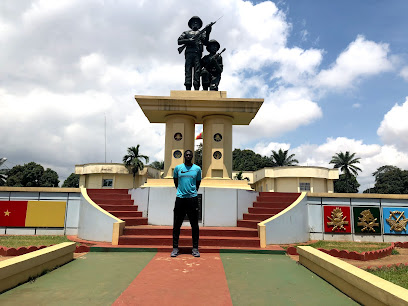
Bois Sainte Anastasie
Escape to Bois Sainte Anastasie: A tranquil park in Yaoundé offering nature, art, and culinary delights for a perfect urban retreat.
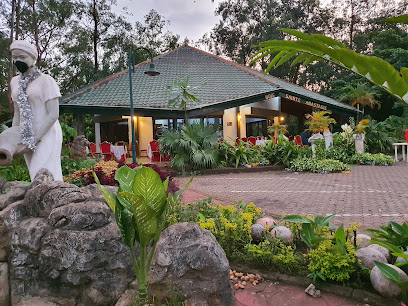
Waza National Park
Discover Cameroon's Waza National Park: a biodiverse haven with lions, elephants, giraffes, and stunning savanna landscapes. An unforgettable African adventure awaits!
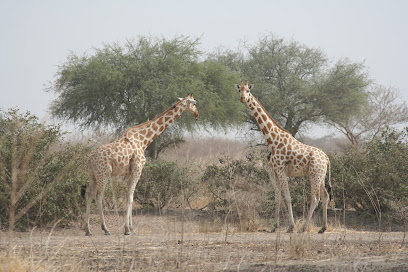
Ekom Nkam Waterfalls
Discover the majestic Ekom Nkam Waterfalls near Nkongsamba, Cameroon: a stunning natural wonder featured in 'Tarzan' and surrounded by lush jungle.
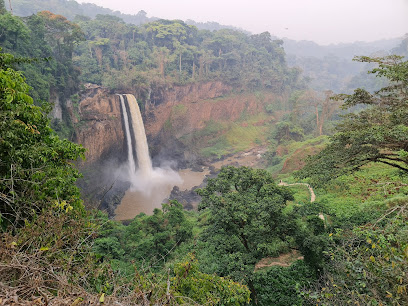
christianna hotel
Discover Bertoua's charm at Christianna Hotel, where comfort meets local hospitality in the heart of Cameroon.
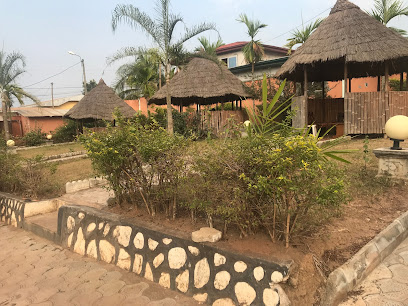
Al Dinder National Park
Explore Al Dinder National Park: Sudan's vast savannah, diverse wildlife, and tranquil landscapes await your discovery.
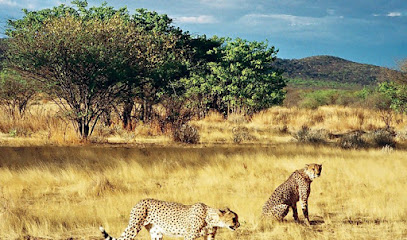
Parc de la Méfou (Ape Action Africa)
Observe rescued primates in a natural setting and support vital conservation efforts at this Cameroon sanctuary.
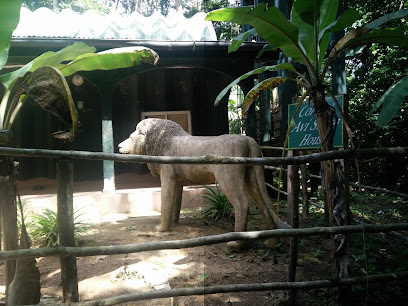
Chefferie Bandjoun
Discover the heart of Bamileke culture at Chefferie Bandjoun, a vibrant chiefdom showcasing Cameroon's rich heritage and traditions.
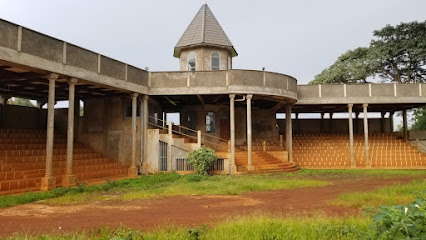
Lake Lagdo
Discover Lake Lagdo in Northern Cameroon: a scenic destination for nature, culture, and relaxation by the tranquil, blue waters.
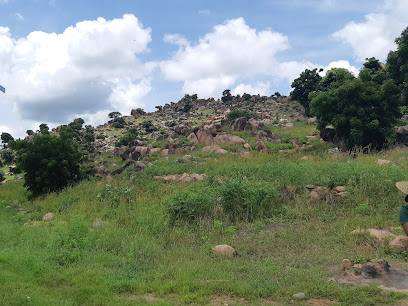
I love my country Cameroon round about
Experience the vibrant culture and stunning views at the I Love My Country Cameroon Round About in Yaoundé, a must-see tourist attraction.
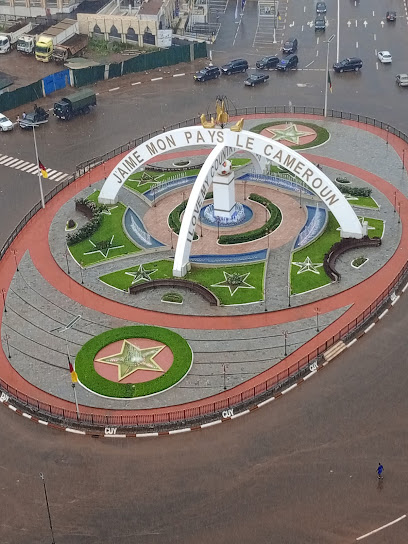
Mount Cameroon National Park
Hike West Africa's highest volcano, explore diverse ecosystems, and discover unique wildlife in Mount Cameroon National Park.
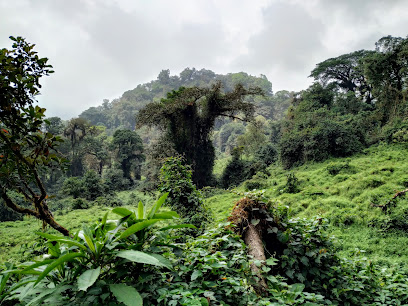
Independence Square
Discover Yaoundé's Independence Square: A vibrant landmark where Cameroon's history, culture, and spirit of freedom come to life.
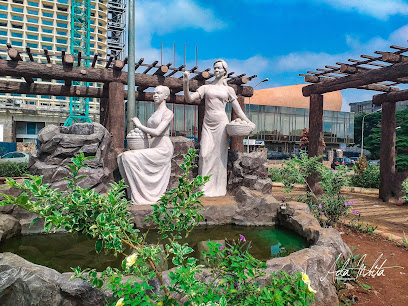
Campo Reserve
Discover Campo Reserve: A Cameroonian paradise of lush rainforests, diverse wildlife, and serene natural beauty. Perfect for eco-adventures!
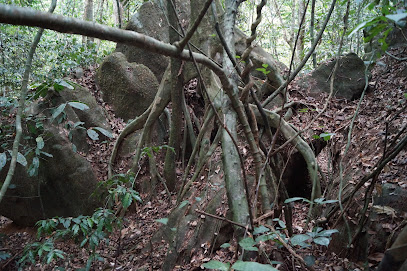
Cathédrale de la Paix
Discover the architectural beauty and tranquil ambiance of Yaoundé's Cathédrale de la Paix, a symbol of unity and peace.
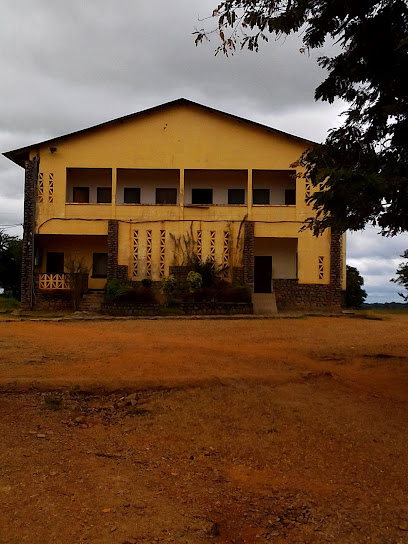
Unmissable attractions to see
Dja Faunal Reserve
Explore Cameroon's Dja Faunal Reserve, a UNESCO site with incredible biodiversity, primates, and pristine rainforests, offering a unique African experience.
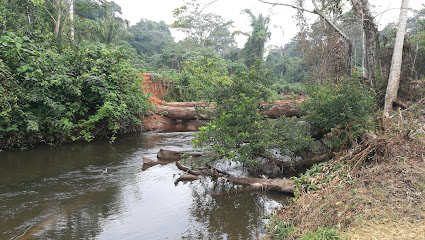
Campo Reserve
Discover Campo Reserve: A Cameroonian paradise of rainforests, diverse wildlife, and breathtaking natural beauty. An unforgettable eco-adventure awaits!
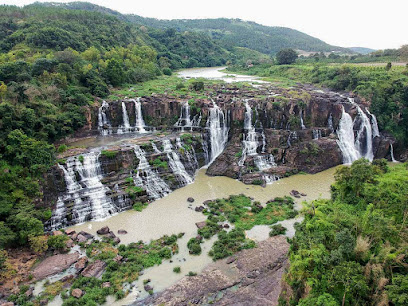
Manèges de Ya-Fe
Experience thrilling rides and family-friendly fun at Manèges de Ya-Fe, the premier amusement park in Yaoundé, Cameroon!
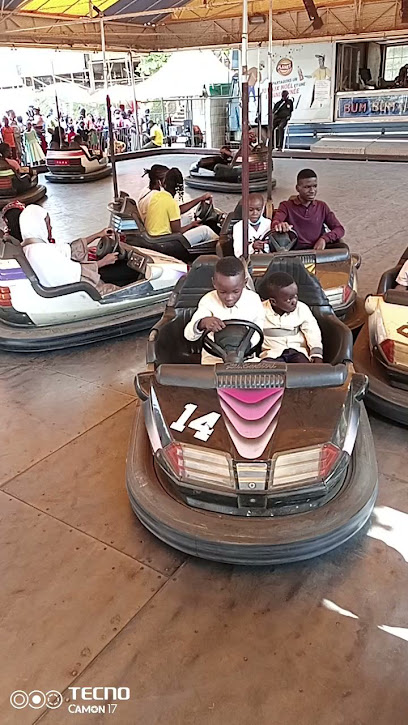
Falaise de Ngaoundere
Explore the breathtaking cliffs of Falaise de Ngaoundere in Cameroon, offering stunning views, hiking trails, and a rich cultural experience.
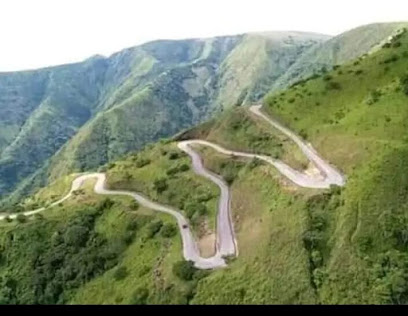
Djaba centre
Experience the vibrant culture and local flavors at Djaba Centre, a must-visit tourist attraction in Cameroon.
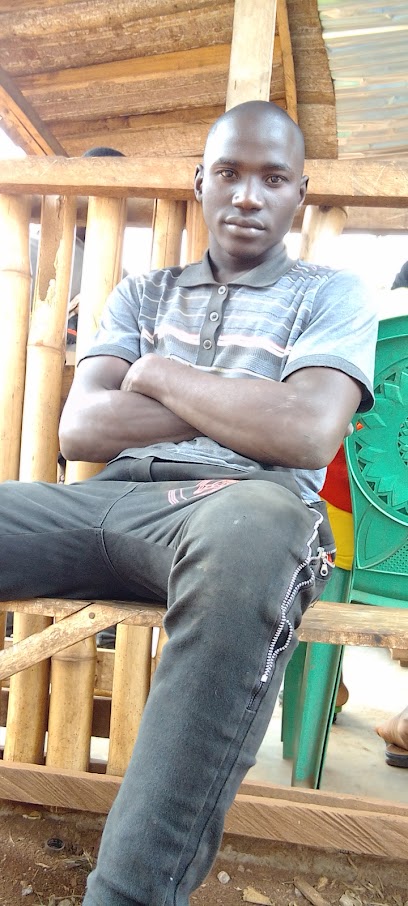
FALAISE DE NGAOUNDÉRÉ
Experience the breathtaking beauty and cultural richness of Falaise de Ngaoundéré – a must-visit natural wonder in Cameroon.
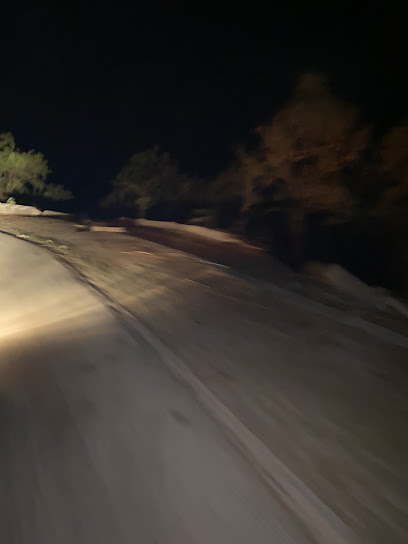
Carrefour Tcholiré
Experience the vibrant culture and bustling markets at Carrefour Tcholiré, the heart of Tcholliré, Cameroon.
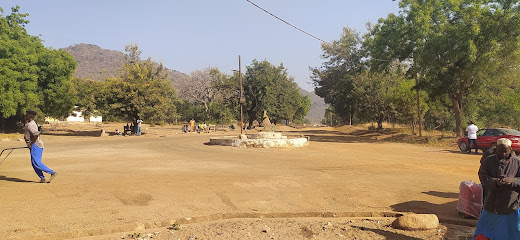
Posté contrôle sortie de Garoua
Explore the scenic beauty and cultural richness of Posté Contrôle Sortie de Garoua, a hidden gem in Bougouma, Cameroon.
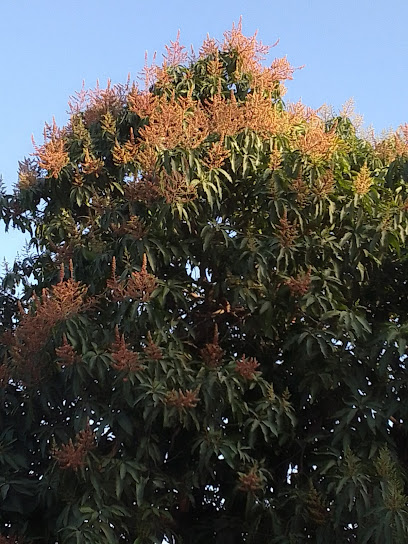
Range B fadil
Explore the peaceful sanctuary of Range B Fadil, a picturesque park in Lagdo, perfect for relaxation and nature immersion.

Lavaïza
Explore Lavaïza Garden in Goétam, a serene escape filled with vibrant plants and peaceful scenery, perfect for relaxation and leisurely strolls.

SOCOMANGA
Discover SOCOMANGA Garden in Gangasaou: A serene escape filled with vibrant flora, perfect for relaxation and stunning photography.
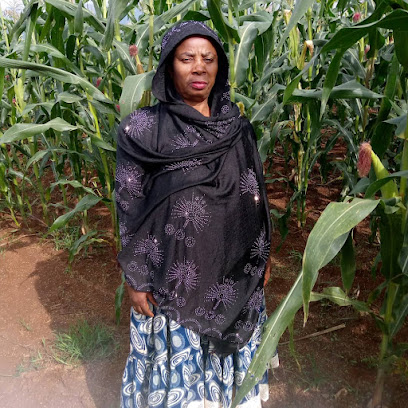
Fils des Voutgnè Fabreez
Experience the vibrant culture of Mbe at Fils des Voutgnè Fabreez: music, art, cuisine, and community await in this Cameroonian treasure.

Essential places to dine
The Famous
Discover authentic Cameroonian cuisine at The Famous in Yaoundé – where every meal tells a story!
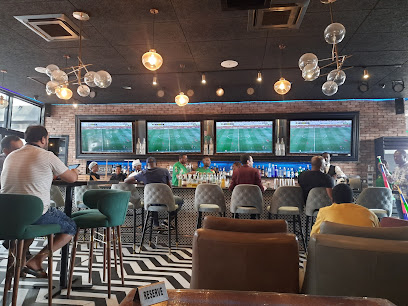
Restaurant Kajazoma
Experience the fusion of Cameroonian and European flavors at Restaurant Kajazoma in Yaoundé - A true culinary adventure awaits!
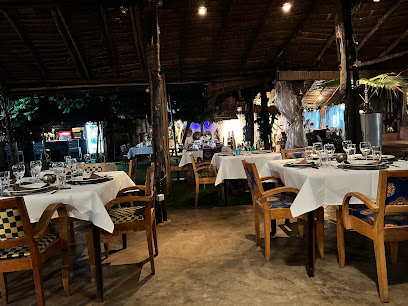
Le Safoutier Restaurant
Experience the finest Cameroonian cuisine at Le Safoutier Restaurant in Hilton Yaoundé – where tradition meets elegance.
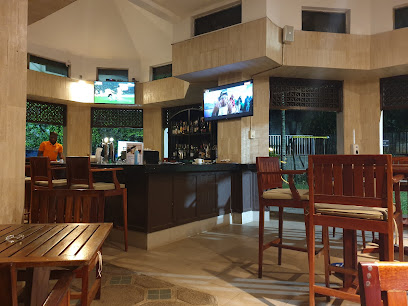
Chez Wou
Discover authentic Chinese cuisine at Chez Wou in Yaoundé – where tradition meets exquisite flavor for an unforgettable dining experience.
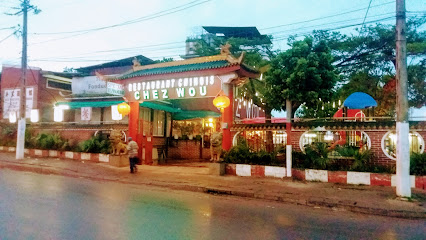
La Salsa Restaurant
Experience the rich flavors of Cameroon at La Salsa Restaurant in Quartier Bastos - a culinary haven for food lovers.
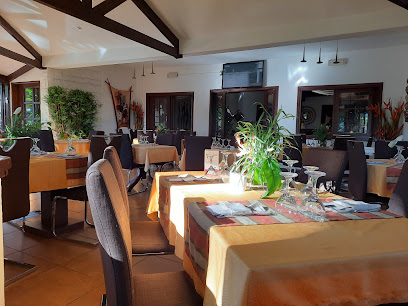
African food by Emy
Discover authentic Cameroonian flavors at African Food by Emy in Douala - a culinary journey through Africa awaits!
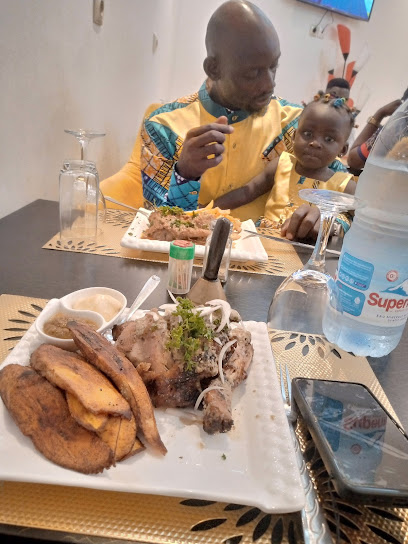
IYA Buea
Experience the rich flavors of Cameroon at IYA Buea – where tradition meets contemporary cuisine in a warm atmosphere.
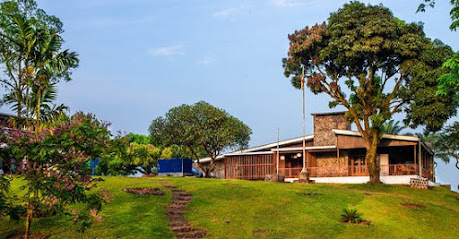
CASCADES ST DAVID
Experience the best of Douala's culinary scene at Cascades St David – where exquisite dining meets vibrant ambiance.
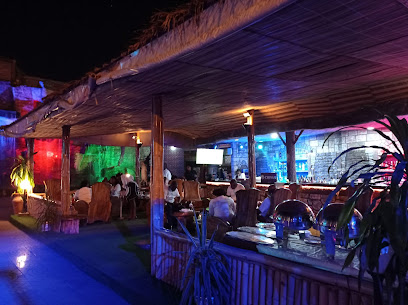
Sparkland Restaurant
Experience authentic Cameroonian cuisine at Sparkland Restaurant in Buea - where every dish tells a story.
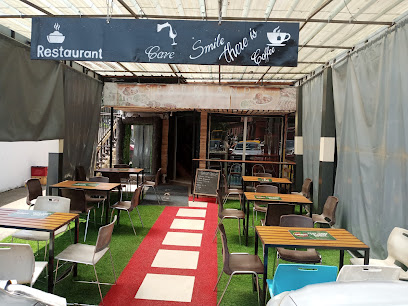
Restaurant Quare Non
Discover the essence of Cameroonian cuisine at Restaurant Quare Non, where every dish tells a story.
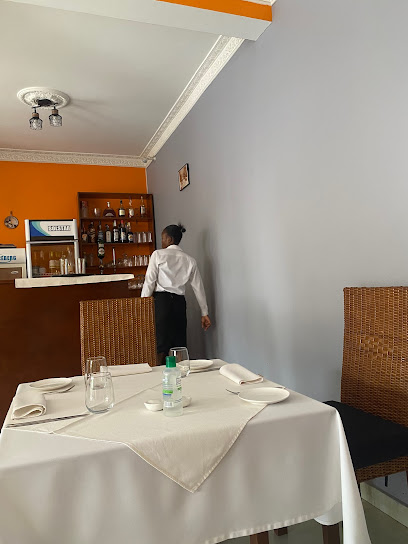
El Walima
Discover authentic Cameroonian cuisine at El Walima in Garoua – where flavors meet culture in an inviting atmosphere.
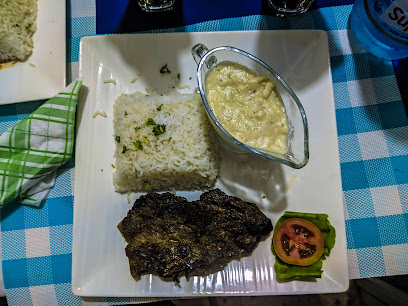
RESTAURANT LA MARQUISE
Discover exquisite Cameroonian cuisine at Restaurant La Marquise in Garoua - where local flavors meet international flair.
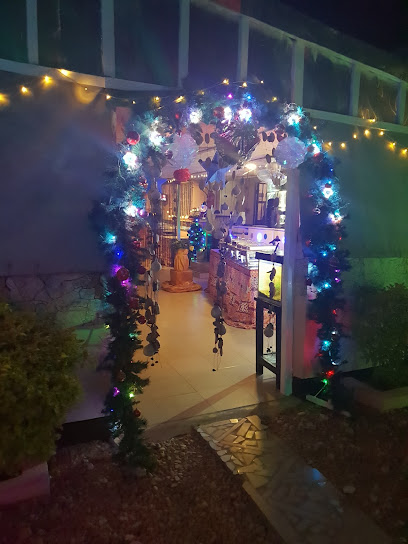
Ô Baobab Grill - Odza
Experience authentic Cameroonian barbecue at Ô Baobab Grill in Yaoundé - where flavor meets tradition in a lively atmosphere.
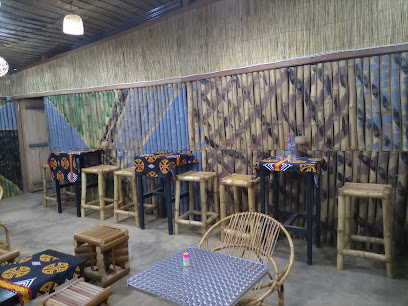
Ndomba
Discover Ndomba in Douala – where authentic Cameroonian cuisine meets global flavors for an extraordinary dining adventure.
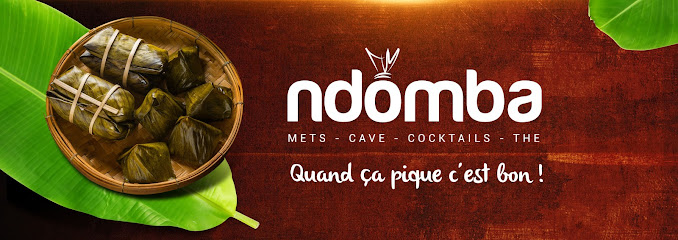
PROPZ Bistro
Experience authentic Cameroonian cuisine at PROPZ Bistro in Buea – where tradition meets flavor in a cozy atmosphere.
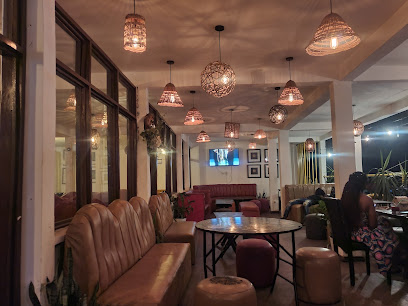
Markets, malls and hidden boutiques
Boubadubai
Explore the bustling Boubadubai Shopping Mall in Ndambi for an unforgettable shopping experience filled with local culture and diverse dining options.
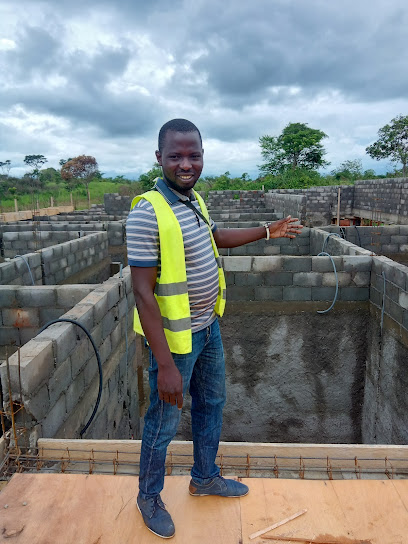
Boutique Aboubakar Coupé
Explore the vibrant art scene at Boutique Aboubakar Coupé, where unique posters capture the essence of Gouna's culture and beauty.
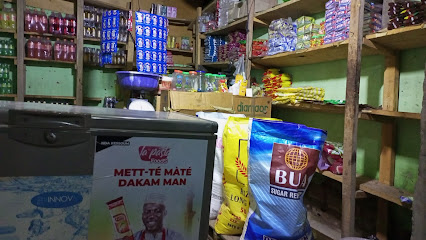
Gamba market
Explore Gamba Market in Nigba, Cameroon, where vibrant culture meets authentic local shopping and delicious street food.
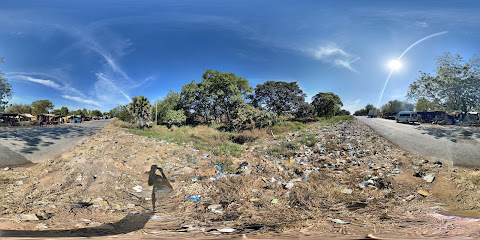
Carrefour Central
Discover Carrefour Central: A bustling shopping mall in Madingrin, offering retail therapy, diverse dining, and entertainment for all ages.
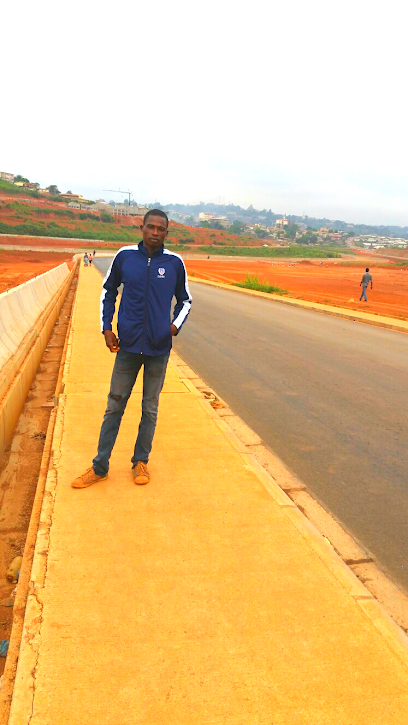
Petit marché de Mbé
Experience the lively atmosphere of Petit Marché de Mbé, where local culture, fresh produce, and authentic crafts come together in a vibrant market setting.
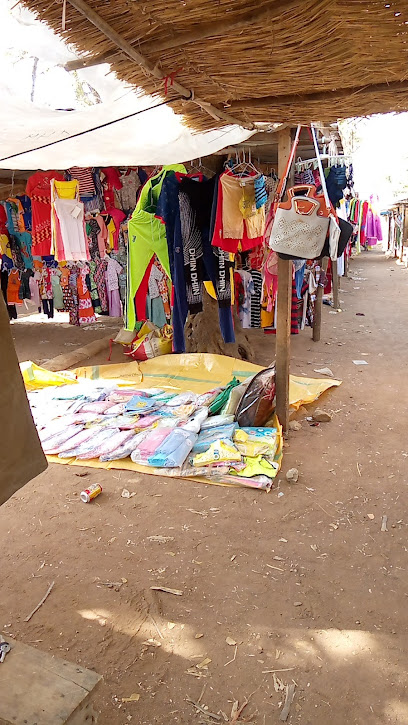
Carrefour Guidjiba
Discover the finest cuts at Carrefour Guidjiba, a butcher shop in Gidjiba, where quality meats meet local culinary traditions.
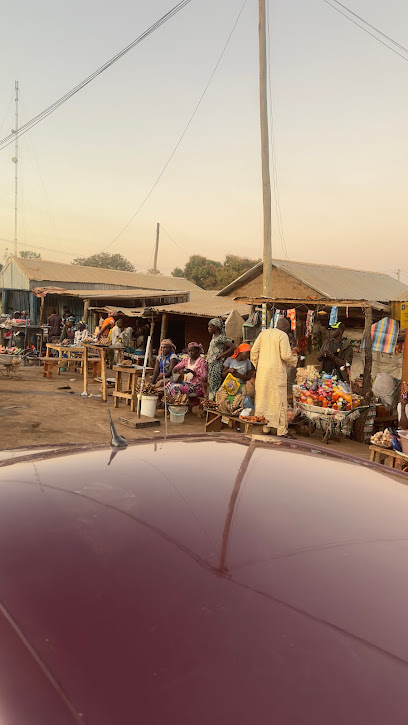
Eredibe Station
Discover Eredibe Station in Pala, Chad—where shopping meets local culture in a vibrant and welcoming atmosphere.

Conglomérat
Experience the essence of Ngaoundere at Conglomérat, your go-to grocery delivery service and consignment shop for local flavors and crafts.
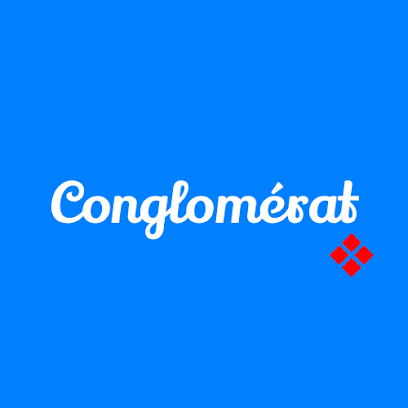
Garoua
Experience the delightful bakery culture of Garoua, where fresh pastries and local flavors come together in a unique culinary adventure.
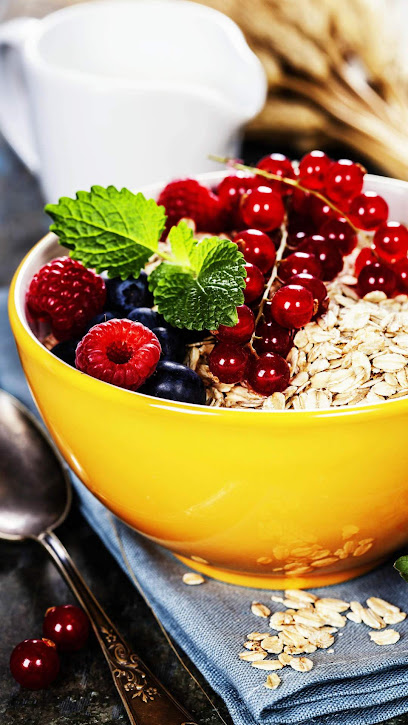
Banda Marche De Pastèques
Explore Banda Marche De Pastèques for a vibrant shopping experience filled with local crafts, delicious street food, and cultural immersion in Cameroon.

Vagana Dieudonné
Discover the vibrant atmosphere of Vagana Dieudonné in Djaba Nord, a shopping mall that showcases local culture and modern retail delights.

PROPHARMACIE DE LA MISSION CATHOLIQUE DE MADINGRING
Experience the local health culture at Propharmacie de la Mission Catholique de Madingrin, your essential stop for wellness during your travels.

Boutique Orange GOUNA
Discover the latest mobile technology at Boutique Orange GOUNA, your go-to store for phones and accessories in the heart of Gouna, Cameroon.
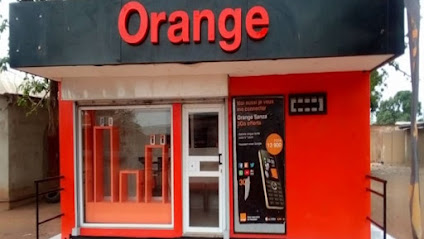
Yigit Secilmis Mark
Discover Yigit Secilmis Mark in Tcholliré for all your travel essentials and a taste of local flavors in a welcoming atmosphere.

Class boutique
Explore Class Boutique in Pala, Chad, for unique handcrafted items and authentic local culture.

Essential bars & hidden hideouts
Black & White Sensation (Bastos)
Unwind in style at Black & White Sensation Lounge, a chic escape in Quartier Bastos, Yaoundé, with delightful drinks and vibrant ambiance.
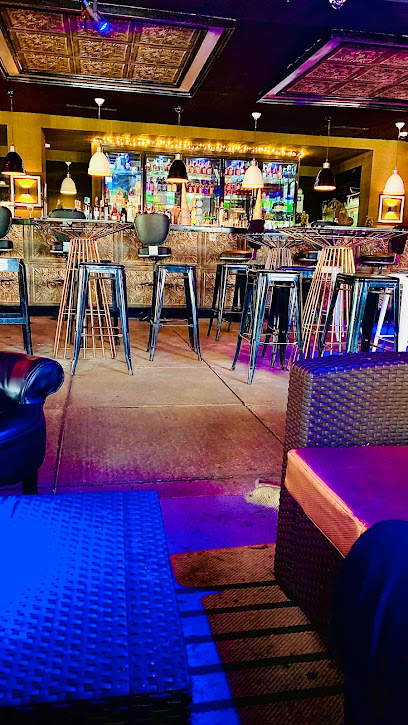
BE BOP
Experience the vibrant nightlife at BE BOP, Douala's top cocktail bar, offering creative drinks and a lively atmosphere for an unforgettable evening.
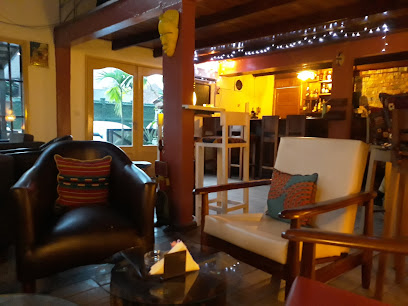
MACADAM BIKERS
Discover the lively atmosphere and diverse drink selection at Macadam Bikers, the ultimate nightlife destination in Yaoundé for both tourists and locals.
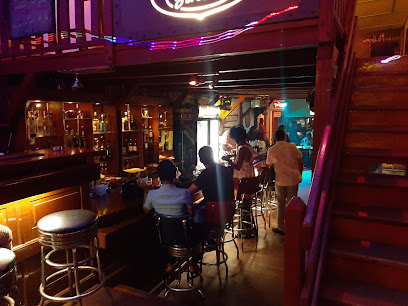
Duchess Lounge
Experience the vibrant ambiance of Duchess Lounge in Yaoundé, where relaxation meets local culture in a cozy setting.
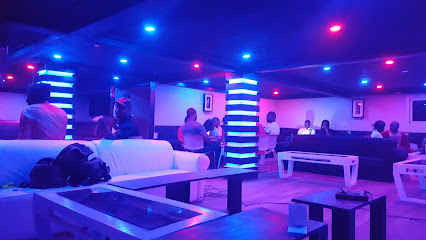
LA CAVE LOUNGE
Discover the lively LA CAVE LOUNGE in Buea, where refreshing drinks and vibrant music create an unforgettable nightlife experience.
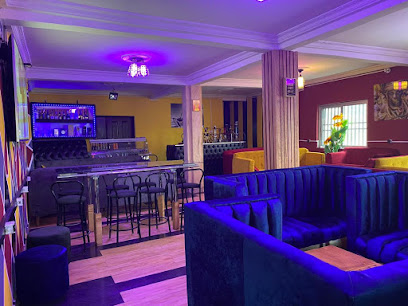
Panamera Lounge
Discover the elegance of Panamera Lounge in Douala, where sophisticated ambiance meets vibrant nightlife for an unforgettable experience.
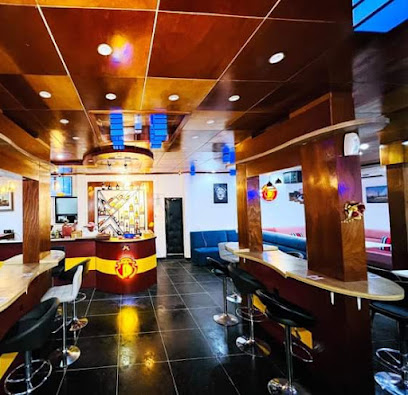
Panoramique Bar & Lounge
Experience breathtaking views and vibrant nightlife at Panoramique Bar & Lounge, the ultimate destination for drinks and sushi in Yaoundé.
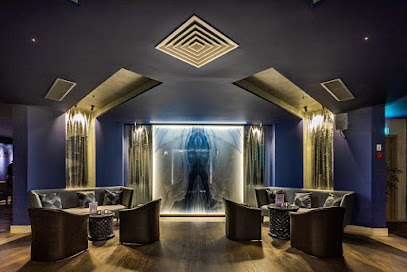
Le Départementale
Discover the vibrant nightlife at Le Départementale, a lively bar in Mbe offering affordable drinks and an inviting atmosphere for all.

Cave ndengue
Experience vibrant nightlife at Cave Ndengue, the quintessential bar in Bafia offering a lively atmosphere and a diverse menu of drinks.
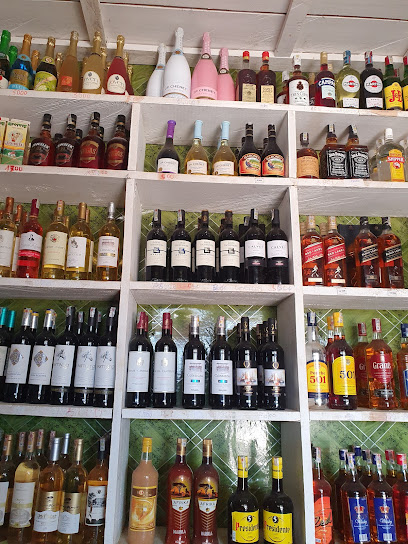
Ndouanaise Bar
Discover the lively Ndouanaise Bar in Bertoua, where local flavors meet vibrant nightlife for an unforgettable cultural experience.

Badjoue Bar
Savor the taste of Cameroon at Badjoue Bar, where every grilled dish tells a story of flavor and tradition.
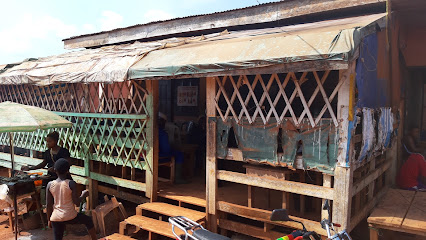
SAM'S Flavour
Experience the authentic flavors of Mbe at SAM'S Flavour, where local cuisine meets warm hospitality.
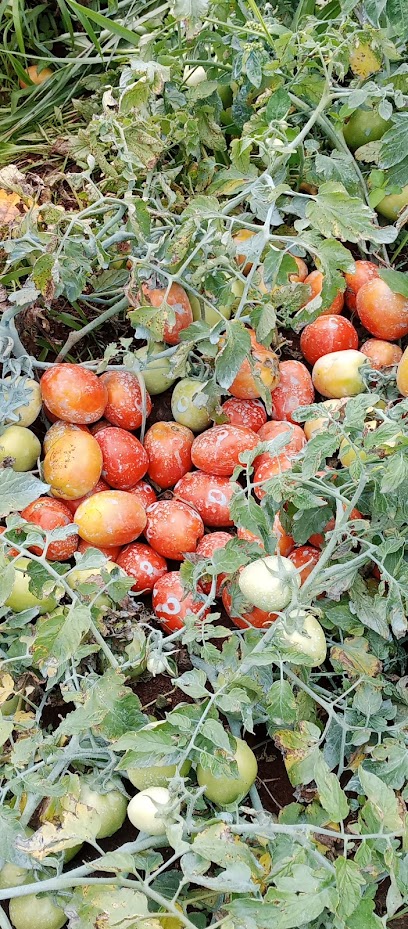
NSHENBENTANG SNACK BAR DJAMBOUTOU
Discover the vibrant local culture at NSHENBENTANG SNACK BAR DJAMBOUTOU, a top spot in Garoua for drinks and community.
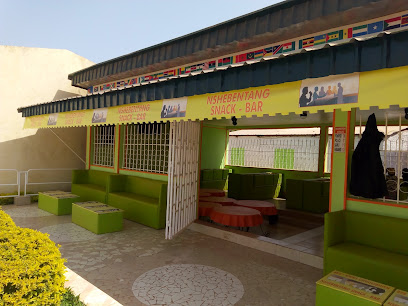
BISSO LOUNGE
Experience the vibrant nightlife at Bisso Lounge in Bonabéri, where refreshing drinks and a lively atmosphere await you.

Local Phrases about Bouba Njida National Park
-
- HelloNdaa
[Ndaa] - GoodbyeNdoh
[Ndɔh] - YesEe
[Ee] - NoAh
[Ah] - Please/You're welcomeOo sa
[Oo sa] - Thank youKpe
[Kpe] - Excuse me/SorryNde
[Nde] - How are you?Dee ndah?
[Dee ndah?] - Fine. And you?Gaa. Oo?
[Gaa. Oo?] - Do you speak English?Oo boyi speak English?
[Oo boyi speak English?] - I don't understandAh nde nyi
[Ah nde nyi]
- HelloNdaa
-
- I'd like to see the menu, pleaseNyini nji menu, toh
[Nyini nji menu, toh] - I don't eat meatAh nyi nyama
[Ah nyi nyama] - Cheers!Ooh!
[Ooh!] - I would like to pay, pleaseNyini nji pay, toh
[Nyini nji pay, toh]
- I'd like to see the menu, pleaseNyini nji menu, toh
-
- Help!Moso!
[Moso!] - Go away!Faa!
[Faa!] - Call the Police!Nyini call Police!
[Nyini call Police!] - Call a doctor!Nyini call doctor!
[Nyini call doctor!] - I'm lostAh nyi faa
[Ah nyi faa] - I'm illAh nyi nfong
[Ah nyi nfong]
- Help!Moso!
-
- I'd like to buy...Nyini nji sanga...
[Nyini nji sanga...] - I'm just lookingNyini nji look
[Nyini nji look] - How much is it?Ah nee nyi?
[Ah nee nyi?] - That's too expensiveAh nyi nyohma nji
[Ah nyi nyohma nji] - Can you lower the price?Oo nyi deh price?
[Oo nyi deh price?]
- I'd like to buy...Nyini nji sanga...
-
- What time is it?Ah nee deh?
[Ah nee deh?] - It's one o'clockNyi yi yi
[Nyi yi yi] - Half past (10)Yi nyi (10)
[Yi nyi (10)] - MorningNwun
[Nwun] - AfternoonNtang
[Ntang] - EveningYafeh
[Yafeh] - YesterdayNdeh ndeh
[Ndeh ndeh] - TodayNdeh
[Ndeh] - TomorrowNdeh za
[Ndeh za] - 1Yi
[Yi] - 2Nyina
[Nyina] - 3Nyini
[Nyini] - 4Nyinyi
[Nyinyi] - 5Nyi
[Nyi] - 6Nyi yi
[Nyi yi] - 7Nyi nyi
[Nyi nyi] - 8Nyi nyina
[Nyi nyina] - 9Nyi nyini
[Nyi nyini] - 10Nyina yi
[Nyina yi]
- What time is it?Ah nee deh?
-
- Where's a/the...?Nyi na...
[Nyi na...] - What's the address?Nyi na address?
[Nyi na address?] - Can you show me (on the map)?Oo nyi show nyi?
[Oo nyi show nyi?] - When's the next (bus)?Nyi na bus?
[Nyi na bus?] - A ticket (to ....)Nyina ticket (to ....)
[Nyina ticket (to ....)]
- Where's a/the...?Nyi na...
History of Bouba Njida National Park
-
Bouba Njida National Park, located in the northeastern region of Cameroon, has a rich history dating back to centuries. The area was originally inhabited by various indigenous tribes, including the Fulani and the Gbaya people. These tribes lived in harmony with the land, relying on hunting, fishing, and small-scale farming to sustain their communities. Their deep connection with nature laid the groundwork for the park's later establishment.
-
During the early 20th century, Cameroon was colonized first by Germany and later by France. The colonial powers recognized the ecological significance of the region and began efforts to protect its unique biodiversity. In 1932, under French colonial rule, Bouba Njida was officially designated as a wildlife reserve. This marked the beginning of its transformation into a protected area aimed at conserving the diverse flora and fauna.
-
After Cameroon gained independence in 1960, the newly established government continued to prioritize the conservation of Bouba Njida. In 1968, the reserve was upgraded to a national park, solidifying its status as a protected area. This period saw an increased focus on wildlife conservation, with efforts to curb poaching and illegal hunting. The park's boundaries were expanded to encompass a greater range of habitats, ensuring the preservation of its unique ecosystems.
-
Bouba Njida National Park is renowned for its rich biodiversity. The park is home to a variety of wildlife species, including elephants, lions, leopards, and a significant population of the endangered Kordofan giraffe. Its diverse habitats, ranging from savannas to gallery forests, support an array of plant and animal life. The park's ecological significance has made it a focal point for conservationists and researchers studying the region's unique ecosystems.
-
Despite its protected status, Bouba Njida National Park faces several challenges, including poaching, habitat destruction, and human-wildlife conflict. In response, various conservation initiatives have been implemented. Organizations such as the World Wildlife Fund (WWF) and local conservation groups have collaborated to strengthen anti-poaching measures, promote sustainable tourism, and engage local communities in conservation efforts. These initiatives aim to ensure the long-term preservation of the park's natural heritage.
-
The cultural heritage of Bouba Njida is deeply intertwined with the traditions of the local communities. The Fulani and Gbaya people, among others, continue to live in and around the park, maintaining their traditional ways of life. Cultural practices, such as traditional dances, music, and storytelling, enrich the region's heritage. Efforts to involve local communities in conservation activities have fostered a sense of stewardship and pride in preserving the park's natural and cultural resources.
Bouba Njida National Park Essentials
-
Bouba Njida National Park is located in the northern part of Cameroon. The nearest major city is Garoua, which has an airport (Garoua International Airport - GOU) that receives flights from Yaoundé and Douala. From Garoua, you can hire a 4x4 vehicle or take a guided tour to the park. The journey by road takes approximately 6 to 8 hours, depending on road conditions. It is advisable to arrange transportation in advance to ensure a smooth journey.
-
Transportation within Bouba Njida National Park is generally done via 4x4 vehicles due to the rough terrain. Hiring a local guide with a vehicle is highly recommended, as they are familiar with the park's layout and can provide valuable insights. There are no public transportation options within the park itself. Visitors should ensure their vehicles are well-maintained and equipped with necessary supplies, including spare tires and sufficient fuel.
-
The official currency in Cameroon is the Central African CFA Franc (XAF). Credit cards are not widely accepted, especially in rural areas and within the park. It is advisable to carry enough cash for your entire trip, including for entrance fees, guides, and any other expenses. ATMs are available in major cities like Garoua, but may not be reliable, so withdrawing cash before heading to the park is recommended.
-
Bouba Njida National Park is generally safe for tourists, but standard precautions should still be taken. Avoid traveling at night and be cautious of your surroundings. Petty crime, such as pickpocketing, can occur, especially in larger cities like Garoua. It is advisable to keep your valuables secure and avoid displaying large amounts of cash. Always travel with a reputable guide who knows the area well.
-
In case of an emergency, contact the local authorities or park management immediately. The emergency number in Cameroon is 117 for police and 119 for medical emergencies. It is essential to have travel insurance that includes coverage for medical evacuation, as the nearest major medical facilities are in Garoua. Carry a basic first-aid kit and any necessary medications, as medical supplies within the park may be limited.
-
Fashion: Do wear lightweight, long-sleeved clothing to protect against sun and insects. Avoid flashy or revealing attire. Religion: Do respect local customs and traditions. If visiting nearby villages, dress modestly and ask for permission before taking photographs. Public Transport: Do be respectful and patient. Public transport outside the park can be crowded and slow. Greetings: Do greet people with a handshake and a smile. Learning a few basic phrases in French or Fulfulde can go a long way. Eating & Drinking: Do try local dishes and drinks, but exercise caution with street food. Always drink bottled or boiled water.
-
To experience Bouba Njida National Park like a local, consider staying in community-run lodges or eco-camps that support local conservation efforts. Engage with local guides who can provide in-depth knowledge about the park's wildlife and history. Visit during the dry season (November to May) for the best wildlife viewing opportunities. Participate in cultural activities, such as traditional dance performances or market visits, to gain a deeper understanding of the local way of life.
Trending Landmarks in Bouba Njida National Park
-
Hôtel Mont Fébé
-
Cameroon Reunification Monument
-
Bois Sainte Anastasie
-
Waza National Park
-
Ekom Nkam Waterfalls
-
christianna hotel
-
Al Dinder National Park
-
Parc de la Méfou (Ape Action Africa)
-
Chefferie Bandjoun
-
Lake Lagdo
-
I love my country Cameroon round about
-
Mount Cameroon National Park
-
Independence Square
-
Campo Reserve
-
Cathédrale de la Paix
Nearby Cities to Bouba Njida National Park
-
Things To Do in Garoua
-
Things To Do in Yola
-
Things To Do in Bertoua
-
Things To Do in Carnot
-
Things To Do in Foumban
-
Things To Do in Bafia
-
Things To Do in Maroua
-
Things To Do in Bafoussam
-
Things To Do in Bamenda
-
Things To Do in Mbouda
-
Things To Do in Yaoundé
-
Things To Do in Dschang
-
Things To Do in Nkongsamba
-
Things To Do in Mamfe
-
Things To Do in Maiduguri








